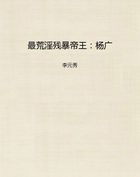He who has lost at play may be vexed at himself and his folly, but if he is conscious of having cheated at play (although he has gained thereby), he must despise himself as soon as he compares himself with the moral law.This must, therefore, be something different from the principle of private happiness.For a man must have a different criterion when he is compelled to say to himself: "I am a worthless fellow, though I have filled my purse"; and when he approves himself, and says: "I am a prudent man, for I have enriched my treasure."Finally, there is something further in the idea of our practical reason, which accompanies the transgression of a moral law- namely, its ill desert.Now the notion of punishment, as such, cannot be united with that of becoming a partaker of happiness; for although he who inflicts the punishment may at the same time have the benevolent purpose of directing this punishment to this end, yet it must first be justified in itself as punishment, i.e., as mere harm, so that if it stopped there, and the person punished could get no glimpse of kindness hidden behind this harshness, he must yet admit that justice was done him, and that his reward was perfectly suitable to his conduct.In every punishment, as such, there must first be justice, and this constitutes the essence of the notion.
Benevolence may, indeed, be united with it, but the man who has deserved punishment has not the least reason to reckon upon this.
Punishment, then, is a physical evil, which, though it be not connected with moral evil as a natural consequence, ought to be connected with it as a consequence by the principles of a moral legislation.Now, if every crime, even without regarding the physical consequence with respect to the actor, is in itself punishable, that is, forfeits happiness (at least partially), it is obviously absurd to say that the crime consisted just in this, that be has drawn punishment on himself, thereby injuring his private happiness (which, on the principle of self-love, must be the proper notion of all crime).According to this view, the punishment would be the reason for calling anything a crime, and justice would, on the contrary, consist in omitting all punishment, and even preventing that which naturally follows; for, if this were done, there would no longer be any evil in the action, since the harm which otherwise followed it, and on account of which alone the action was called evil, would now be prevented.To look, however, on all rewards and punishments as merely the machinery in the hand of a higher power, which is to serve only to set rational creatures striving after their final end (happiness), this is to reduce the will to a mechanism destructive of freedom; this is so evident that it need not detain us.
More refined, though equally false, is the theory of those who suppose a certain special moral sense, which sense and not reason determines the moral law, and in consequence of which the consciousness of virtue is supposed to be directly connected with contentment and pleasure; that of vice, with mental dissatisfaction and pain; thus reducing the whole to the desire of private happiness.Without repeating what has been said above, I will here only remark the fallacy they fall into.In order to imagine the vicious man as tormented with mental dissatisfaction by the consciousness of his transgressions, they must first represent him as in the main basis of his character, at least in some degree, morally good; just as he who is pleased with the consciousness of right conduct must be conceived as already virtuous.The notion of morality and duty must, therefore, have preceded any regard to this satisfaction, and cannot be derived from it.A man must first appreciate the importance of what we call duty, the authority of the moral law, and the immediate dignity which the following of it gives to the person in his own eyes, in order to feel that satisfaction in the consciousness of his conformity to it and the bitter remorse that accompanies the consciousness of its transgression.It is, therefore, impossible to feel this satisfaction or dissatisfaction prior to the knowledge of obligation, or to make it the basis of the latter.A man must be at least half honest in order even to be able to form a conception of these feelings.I do not deny that as the human will is, by virtue of liberty, capable of being immediately determined by the moral law, so frequent practice in accordance with this principle of determination can, at least, produce subjectively a feeling of satisfaction; on the contrary, it is a duty to establish and to cultivate this, which alone deserves to be called properly the moral feeling; but the notion of duty cannot be derived from it, else we should have to suppose a feeling for the law as such, and thus make that an object of sensation which can only be thought by the reason; and this, if it is not to be a flat contradiction, would destroy all notion of duty and put in its place a mere mechanical play of refined inclinations sometimes contending with the coarser.
If now we compare our formal supreme principle of pure practical reason (that of autonomy of the will) with all previous material principles of morality, we can exhibit them all in a table in which all possible cases are exhausted, except the one formal principle; and thus we can show visibly that it is vain to look for any other principle than that now proposed.In fact all possible principles of determination of the will are either merely subjective, and therefore empirical, or are also objective and rational; and both are either external or internal.
Practical Material Principles of Determination taken as the Foundation of Morality, are:
SUBJECTIVE.
EXTERNAL INTERNAL
EducationPhysical feeling (Montaigne) (Epicurus)The civilMoral feeling Constitution (Hutcheson)(Mandeville)
OBJECTIVE.
INTERNAL EXTERNAL















